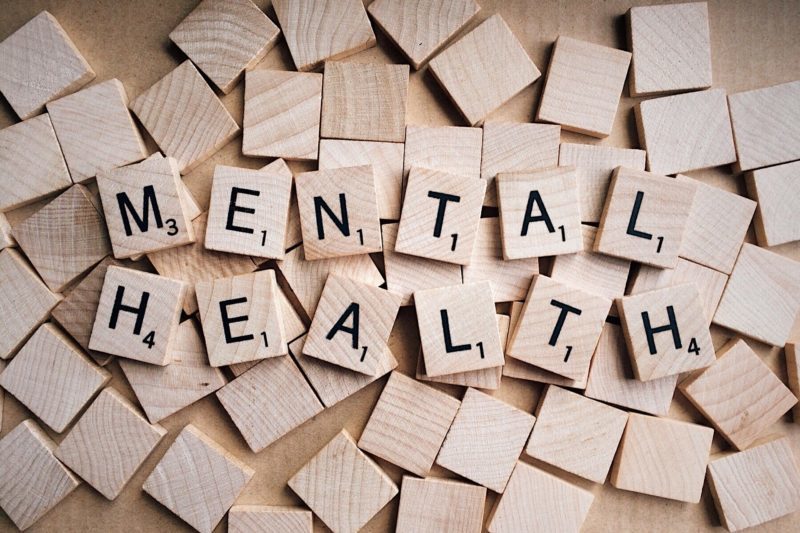Improving mental health and wellbeing in the workplace
Mad World conference in London tackles the issue of mental health and wellbeing in the workplace, and what should be done to improve employees’ wellbeing.

The issue of good mental health and wellbeing has never been more topical, particularly following World Mental Health Day, but for many occupational health and wellbeing professionals, the question remains about how it can be embedded in people’s working lives.
While there are many companies that are blazing a trail in this area, there are also organisations that are reluctant to change and for anyone working in such a company, the most pressing question is how do you make a business case for mental health?
The recent Mad World conference in London devoted a lot of time to discussing how to achieve buy-in for mental health and wellbeing initiatives, with experts from both the public and the private sector.
What does wellbeing mean?
One of the speakers was the associate director of health and well-being at construction giants Mace, Dr Judith Grant.
She told the conference that when she first joined Mace 18 months ago, she was able to spend time with her board members and find out what wellbeing meant to them.
“It was important to encourage the board to invest in this area and to understand what their starting point was,” she told delegates.
“I got investment to do a large-scale survey of the organisation, which gave us some meaningful data that we were able to share back to the board.
“We found at an organisational level, the wellbeing of the organisation was pretty good. We asked people what helps you to have a good day at work? We found there was a correlation between productivity and wellbeing. The sites with high wellbeing had higher productivity, staff have less intention to leave the business and the sites had lower presenteeism rates.
“We were able to show what a small increase in wellbeing would do to our productivity levels,” added Dr Grant.
“The UK is lagging behind significantly in terms of productivity, with Brexit on its way, there will be challenges in the economy. Presenting wellbeing in this helps get buy in from business leaders.”
She added that Mace are looking to launch a more individualised approach to stress management in the New Year.
“We are looking at how we can support line managers,” she revealed. “It’s all very well having mental health training, but we need to be supportive of line managers to intervene early and support managers.”
Dealing with mental health in the workplace
HSE senior psychologist Peter Kelly said it was important to find somebody on the company board who had a personal experience of mental health.
“I watched a group of hard-nosed city lawyers crumble as one of their colleagues said ‘you know when I went off last year with an abdominal problem, I was suffering with depression’,” he told the conference.
“Find the people in the organisation who are positive towards it and use them as a trigger.”
Pauline Young, a research manager at the Essex Partnership University NHS Foundation Trust also spoke of her experiences of dealing with mental health in the workplace.
“As a mental health trust, we are very au fait with what mental health is all about,” Ms Young told the conference.
“We’re fortunate we take mental health seriously, because it’s our business,” she added. “We also have a large volume of our staff, who suffer from mental health conditions. If the staff are not well, then we cannot help our patients and they need our services.”
She said the Trust has used a “stress buster mobile phone app” to help workers engage with simple tasks during the day and relieve anxiety.
“With the app, we have simple measures to gauge whether people are getting enough rest and what people are worried about,” said Ms Young.
“It uses small snapshots like telling someone to think of something they have to do in the day, and to tackle it first in the day rather than leaving it to the end of the day. People can become anxious about that particular activity. All it does is build those stress levels. Every time you try to put it off, you are becoming more unwell,” she added.
“We’re trying to encourage people to start the day by doing the thing they do not want to do first, get that out of the way, and then the rest of the day will be a lot more comfortable then.”
Mental health strategy
 One of the company’s that is leading the way on mental health awareness and promoting wellbeing is Thames Water.
One of the company’s that is leading the way on mental health awareness and promoting wellbeing is Thames Water.
SHP Online has reported in the past how it has worked with the mental health charity MIND to develop a new mental health awareness training course, called Mind-Fit, which uses virtual reality to put the user in the position of someone with mental health conditions.
It has also implemented a mental health strategy that has led to a reduction in time lost to illness of nearly 80% over the last five years.
Speaking at the Mad World event, Thames Water’s Chief Health, Safety and Security Officer, Karl Simons, said it had worked hard to put mental and physical health on an equal footing with safety in the organisation.
“When I first talked to my executives five years ago, they were interested in safety initiatives because that’s how we reduce injuries. Wrong! The vast majority of injuries come from deviation of a safe system in work, because people make errors in judgement, they are out to lunch or not focused,” he told the event.
He said one area the company had worked very hard on was making mental health and wellbeing courses attractive, so that staff members want to go on them.
“Both my half-day Mind Fit awareness and my two-day mental health first aid courses are fully booked for the next year and none of them are mandatory,” said Mr Simons.
“And now one in 10 people across the organisation are trained as mental health first aiders.”
But Mr Simons also asked the audience if the HSE should play a tougher role in making companies think about mental health an issue improvement notices.
“Imagine the impact the HSE would have if it said it was going to do a mental health blitz? Everybody knows when the HSE is doing a manual handling blitz. It won’t get to every site, but the impact is still massive. UK plc would start to look at it then,” said Mr Simons.
Improving mental health and wellbeing in the workplace
Mental health and wellbeing in the workplace, including strategies to improve the working environment and reduce people suffering from mental health related issues.
Jamie Hailstone
SHP - Health and Safety News, Legislation, PPE, CPD and Resources Related Topics
Legal update: The year ahead for workplace wellbeing
British Safety Council Wellbeing Conference: Empowering Employees for Success
New flexible working legislation – what does it mean?


 One of the company’s that is leading the way on mental health awareness and promoting wellbeing is Thames Water.
One of the company’s that is leading the way on mental health awareness and promoting wellbeing is Thames Water.